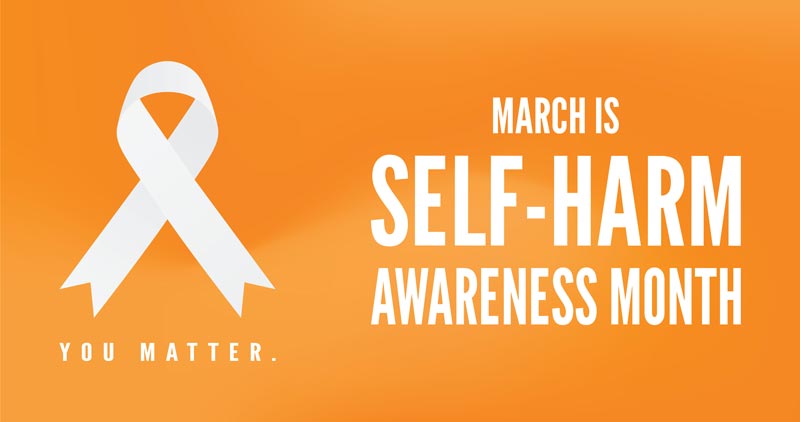By: Kenya Evans
The holidays are sacred in American culture: a time when families gather to celebrate and connect and, according to the advertising and media all around us, be perfect and loving with each other all season long.
The buildup to the holidays is intense, and the pressure to feel excitement, happiness, and gratitude can be a lot. What happens when the thought of sitting around a table together conjures dread and stress instead?
If the “important” family holidays bring you more stress than bliss, you’re not alone.
For most of us, family is where we learn patterns and behaviors – the good, the bad, and the hard-to-untangle. So when entire months of our lives are centered around the joys of togetherness, it makes sense that a holiday dinner can give us more than an appetite.
Complex family dynamics, hidden traumas, gender roles, and unhealthy communication patterns can come barreling to the surface during these festive occasions. Combined with the intense pressure to find the joy and magic of the season, many of us feel a litany of emotions that are not easy to navigate.
The holidays can be especially tough for people who have worked hard to distance themselves from family connections and break unhealthy cycles. It can be very difficult to “suck it up” and celebrate within problematic family relationships, from critical parental figures to intolerant siblings and insensitive aunts and uncles. It can sometimes feel like all of the hard self-work we’ve done is thrown into reverse.
How can we navigate family dinners and events with less stress and anxiety, drop the Hallmark expectations, and learn to experience these times on our own terms?
Set Boundaries
Setting healthy boundaries is a critical part of any healthy relationship. Before you gather with your family, think deeply about what topics are off-limits for you (ex.: choice of partner, finances, sexuality, religious beliefs, etc.) and be ready and willing to enforce your boundaries around these topics. You can say, “I don’t feel comfortable talking about that. Let’s focus on X instead.” If you have a trusted friend or partner with you, let them know in advance what your boundaries are and talk about how they can support you during the festivities.
If things become particularly heated or distressing, it’s okay to further enforce your boundaries by removing yourself from the vicinity for a few moments (“I’m going to watch TV in the other room,” or “I need to get some fresh air, excuse me”). Or, if necessary, leaving the holiday event altogether.
Validate Your Emotions
It is okay to feel angry, full of dread, sad, or hurt during the “most wonderful time of the year.” Be sure to validate these emotions as they come up and give yourself some grace. Family members and family dynamics can be challenging any time of year; the holidays tend to amplify those dynamics and challenges. So, understand that you have a right to your feelings. Take time to accept your emotions without judging or criticizing yourself or feeling shame about your own emotional state.
Acceptance
One of the fundamental distress tolerance skills we use in Dialectical Behavioral Therapy (DBT) is radical acceptance. Radical acceptance is just what it sounds like: accepting the way things are without judgment of reality or hope that these things will change. Certain family members may never apologize for something they have done or said, for how they have acted in the past, or for not recognizing that you may have grown and changed. Allow yourself to accept that reality for what it is, without putting any emotional effort into wishing things were different or trying to change someone’s mindset. Focus on what you have accomplished and plan to accomplish, where you are today, your growth and change, and who you are working to be.
Advocate & Do a Little Planning
If you know that sitting beside a particular family member is sure to kick off a long and spirited political debate, quietly ask before the holidays to be seated elsewhere. If you have dietary choices that don’t align with the rest of your family, offer to bring a dish you know you can enjoy. If you know alcohol will be part of the celebration and you won’t be partaking, ask if there will be some non-alcoholic beverage options available—even if that means bringing your own supply. It’s always okay to advocate for yourself and your comfort.
Practice Deep Breathing
No matter the dynamic, family dinners can sometimes be intense. Simmering tension, passive-aggressive conflict, and even overt arguments can erupt when families gather. We can also feel emotional intensity around less volatile factors: the absence of a beloved family member, the reality of aging parents, or good old nostalgia. To help manage the stress of togetherness, try to practice mindfulness techniques like four-square breathing. This technique includes inhaling for a count of four, holding for a count of four, and exhaling for a count of four. Repeat this method several times until you feel calm and centered. Concentrating on breathing can bring your mind into the present and alleviate obsessive and unhelpful thoughts.
Don't Compare
Recognizing that you are unique can go a long way in stopping comparisons. You have a valuable perspective; you are not your siblings, cousins, uncles, or aunts. If you feel tempted to begin mentally comparing yourself to those around the dinner table, try remembering that everyone is different. Radically accept that you do not have to be like family members to have a relationship with them.
Take a Financial and Emotional “Time Out.”
The hustle and bustle of shopping and the stress of finances can be taxing for anyone. It doesn’t matter what your economic status may be. However, it can especially stressful during the holidays. For many of us, shopping takes the cake when it comes to stressful activities. The long lines, the crowds, and the rising costs of goods can make anyone feel down. For some, carrying the burden of buying food, supplies, and gifts can not only be a hassle but may be an economic hardship–one that family members don’t always recognize or understand.
The American Psychological Association cites finances around the holidays as a significant source of distress for many people. Economic issues such as a rise in layoffs or cuts can also create insecurity, uncertainty, and fear. Give yourself the gift of realistic gifting goals for yourself. That can mean setting (and sticking to!) a workable budget, giving experiences instead of things, making a “no-gift pact” with siblings or friends, or simply scaling back on what you can put under the tree. Remember: after the lights are taken down and the tinsel is put away, you’ll still be left with the low balance or debt you incurred. Evaluate how much stress you’re willing to take on to meet others’ expectations.
Cancel Plans
Some family dinners can brew more than just a few good recipes—they may be highly toxic. If you can’t see yourself spending an entire evening with family, you have the option of simply not going. If foregoing the festivities is the best thing for your mental health, that’s okay. You don’t owe anyone an explanation. If you choose to opt out of a gathering, replace it with something you enjoy: catch up on a hobby, take yourself to the movies, binge a favorite show, or create your own gathering with trusted friends and supportive folks.
Remember: Nothing Is Perfect
Above all else, don’t pressure yourself to have a perfect evening, weekend, or event. Understand that mishaps, accidents, and surprises happen. Try not to overwhelm yourself with expectations and leave room for grace and kindness. The critical point is that you are human–even if your dish doesn’t turn out, if you say the wrong thing, or if you spill gravy on Aunt Martha. Everyone has good moments and not-so-great ones, and that’s okay.
Talk It Out
If you find the holidays bring on overwhelming emotions that you don’t feel like you can process in a healthy way, it’s okay to ask for help. Talking with a mental health professional can help you navigate these complex feelings before, during, and after the holiday season. A mental health specialist can help you build a personalized toolbox of solid coping strategies, realistic life goals, and action plans for the holidays and beyond.
Remember, you are not alone.
If you or someone you know is struggling with big emotions or overall mental health during this holiday season (or any time), Skyway is here.
Call us at 224-970-1022 or email .




